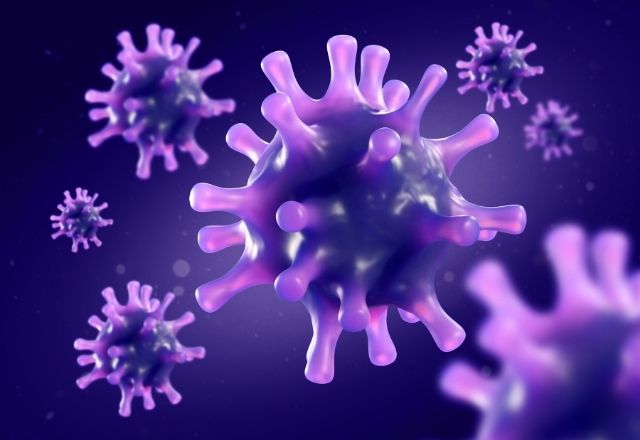Child death review data significant in the fight against COVID-19.
We are uniquely placed to our statutory position as a conduit for child death data across the whole country to support the fight against COVID-19. As such, we have established a real-time surveillance system to analyse the information we collect and pass it on to NHS England and Public Health England as a matter of urgency to inform national strategy. We are seeing evidence of how this work is having an immediate effect on children’s lives, however, we need prompt and comprehensive data from health and CDR professionals to continue this life-saving work…
How can you help?
Most importantly, health and social care should continue to inform us of all children who die of ANY CAUSE within 48 hours of death. Cases must be reported via your local CDOP office, mentioning COVID-19 in the notification of death if the virus could have been a factor. Please think beyond COVID-19 symptoms to help us fully understand the impact of the virus on children; think C-H-I-L-D when reporting child deaths:
C – COVID-19: Children with COVID-19 (confirmed or suspected), even if they die of another cause – see below, further information on COVID-19 in children
H – HOME: Factors relating to being in the home, including inflicted injury and child suicide.
I – INFECTION: Children who die of any cause, but show signs of undiagnosed infection in the 14 days before death.*
L – LOCKDOWN: Factors relating to lockdown such as changes in access to services.
D – DELIVERY: Babies who die who are delivered to mothers known or suspected to have COVID-19.
*Including those who meet the criteria for a Joint Agency Response (JAR) where the cause of death is unknown or where family members have had COVID-19 symptoms.
Children and COVID-19
Reports are emerging of a small number of cases of a COVID-19 related condition in children. The RCPCH states: “New diseases may present in ways that surprise us, and clinicians need to be made aware of any emerging evidence of particular symptoms or of underlying conditions which could make a patient more vulnerable to the virus”. Described as a Kawasaki-like condition, the RCPCH have provided further details of what health professionals need to be alert to, including:
- A significant systemic inflammatory response
- Shares common features with other paediatric inflammatory conditions including: Kawasaki disease, staphylococcal and streptococcal toxic shock syndromes, bacterial sepsis and macrophage activation syndromes
- High cardiac complication rate
- Can also present with unusual abdominal symptoms with excessive inflammatory markers.
Please note that viral swab tests can be negative, but serum antibodies against SARS-CoV-2 are positive.
More information on a study of the condition as studied in Italy can be found in The Lancet, May 2020.
You can also read answers to common questions about the effect of Covid on children in our blog Covid deaths in children: What impact has the pandemic had on child mortality?
Babies and COVID-19
Evidence about how COVID-19 threatens the lives of new-born babies and infants is limited. More information is needed from those working in neonatal settings, in particular on:
- The impact of chronic morbidities in children on their risk of dying due to COVID-19
- Sudden unexpected death in infancy (SUDI), and
- Babies born preterm, where the mother had severe COVID-19.
- Notify all child deaths to your local CDOP office within 48 hours in the normal fashion, including COVID-19 in the Notification form if any of the above applies.
- Where infection is known or suspected (including maternal infection where the baby has died), request appropriate samples and subsequently notify your local CDOP of the results.
NEW forms: More specifically, we have added a revised version of the national Notification form onto eCDOP and the NCMD Portal, and an updated paper form is available on the DHSC website. This form will include specific questions relevant to the fight against COVID-19 that are now needed at the point of notification of death. Some of these questions are new and some you will recognise from the Reporting form. However, we are aware that clinicians may not be able to prioritise completion of Reporting forms and some hospital trusts have cancelled CDR meetings at this time – although these should continue where possible – so we are as asking for more information than usual at the point of notification.
NEW functionality: We have created a new alert function in both eCDOP and the NCMD Portal. This will enable you to highlight, in real time, issues that are time critical, and where prompt wider communication to health and social care professionals could reduce deaths. This includes, of course, cases relating to COVID-19.
NEW link with BadgerNet: To support the national surveillance of the effect of COVID-19 in babies and children under neonatal care, we are establishing a link with the BadgerNet maternity system. More specifically, this will enable a direct feed of clinical information around deaths in a neonatal setting. NOTE: NCMD data linkage with BadgerNet does not replace the child death review notification process, which remains a statutory requirement.
Further support under COVID-19
- Information regarding children and the wearing of masks during COVID-19.
- For TOP TIPS on holding virtual CDOP meetings, click here.
- For revised guidance for JAR under COVID-19, click here.
- You might find the following link from NHSX – with information on how to manage and share information appropriately at this time – useful: NHSX Information Governance.
If you have any questions relating to NCMD’s response to COVID-19 and the actions CDR professionals should take, contact us by email.

